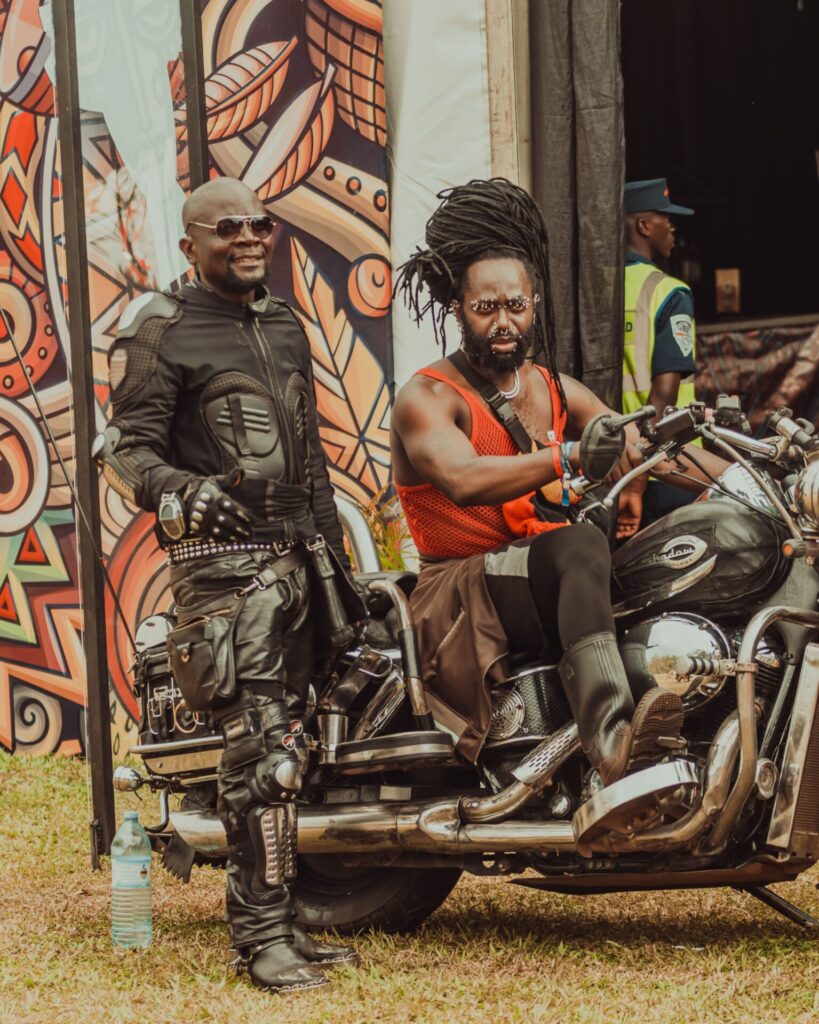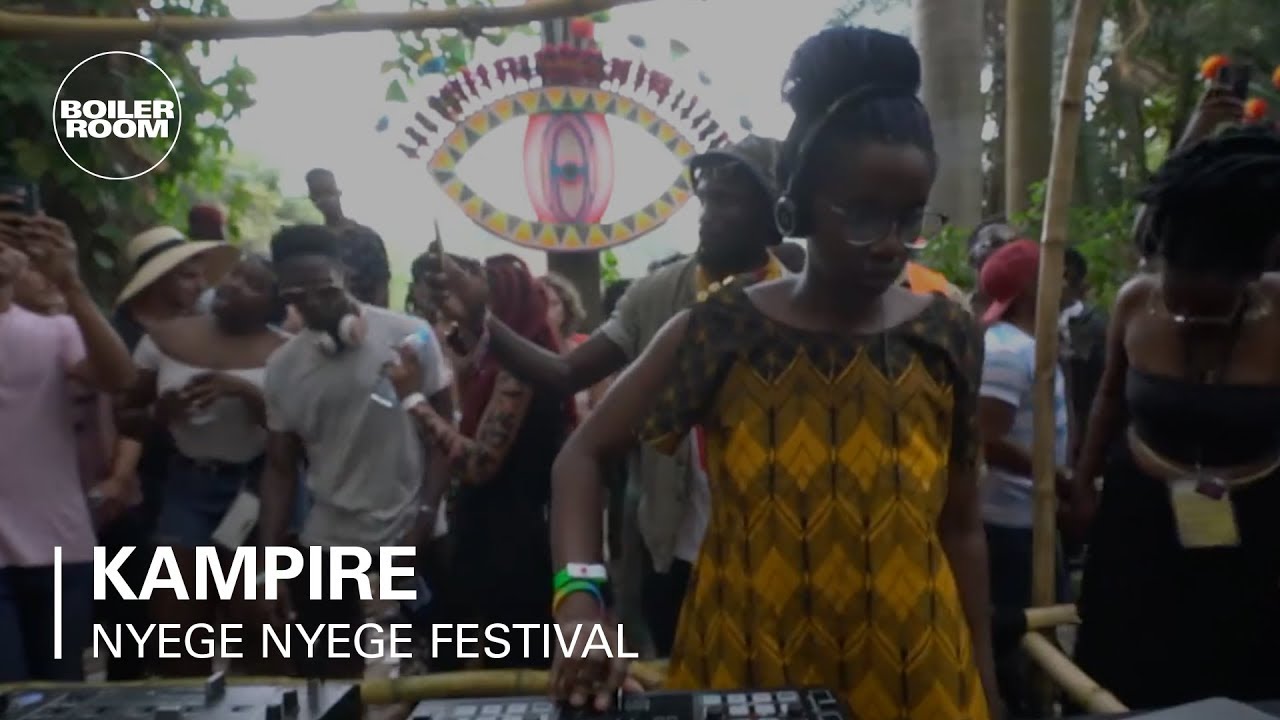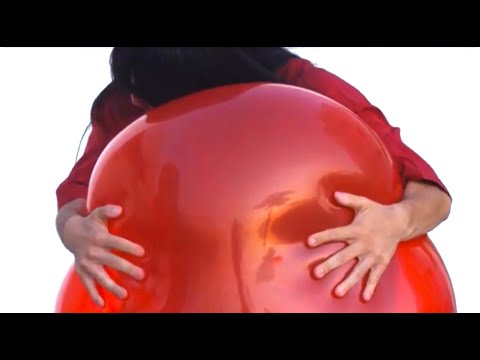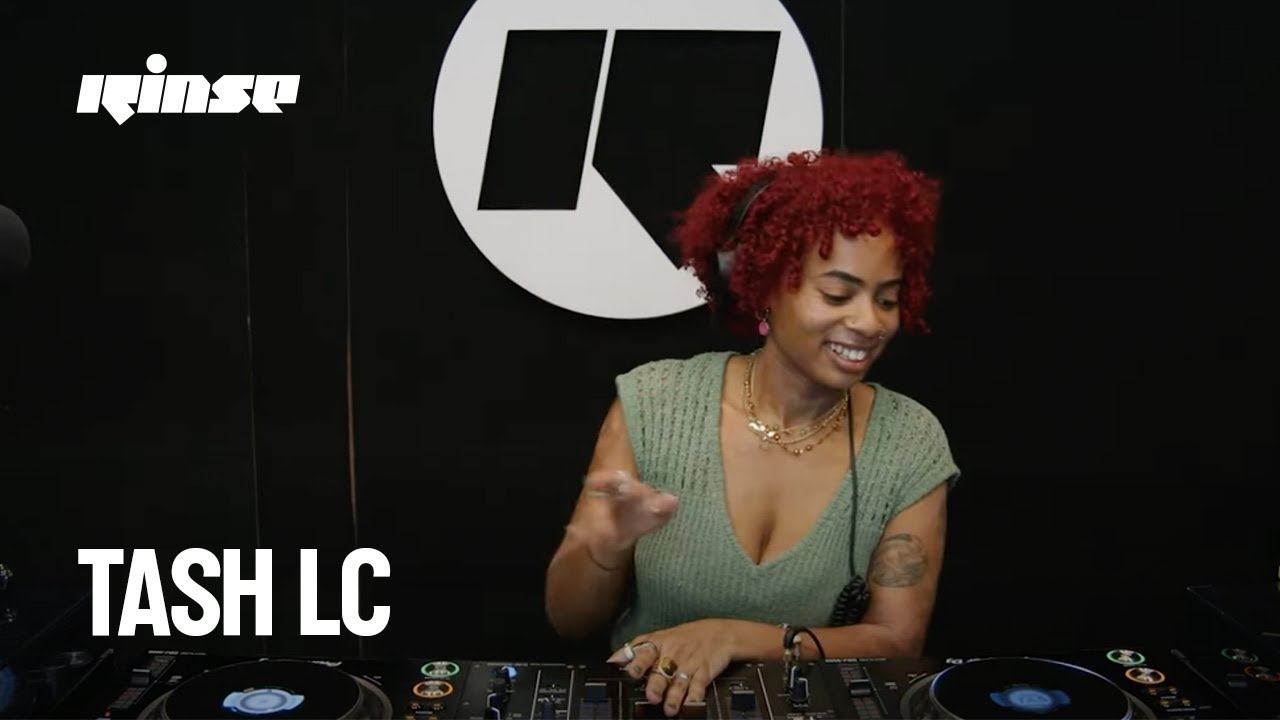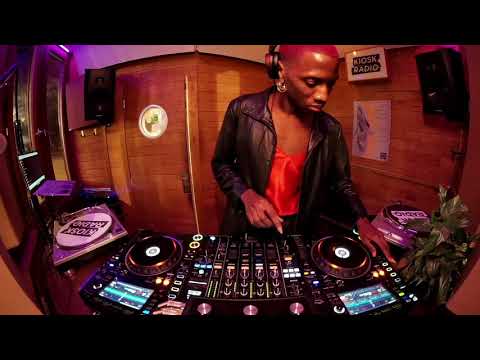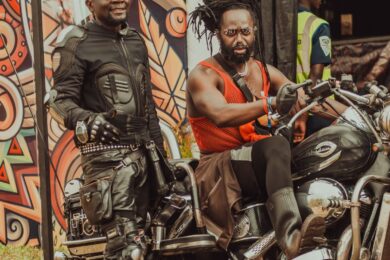In Jinja, Uganda’s “adventure capital,” Nyege Nyege Festival stands as a vibrant meeting point where Afro-subversive cultures can thrive. Translating to “the irresistible urge to dance” in Luganda, the festival’s name captures the dynamic ethos of its four-day celebration: a diverse showcase of live music, experimental rhythms, and countercultural expression. Founded in 2015 by the Nyege Nyege collective, a group of Kampala-based creatives, the festival has evolved into an international phenomenon. At the helm are Arlen Dilsizian and Derek Debru, immigrants who co-founded the collective in 2013 and helped shape its vision.
The festival and its associated label, Nyege Nyege Tapes, were created to fill a significant void in Uganda’s cultural landscape. “We didn’t really plan anything – it unfolded naturally as we started throwing small parties, discovering new artists we weren’t aware of,” Dilsizian recalls of the project’s origins. “These artists weren’t really being platformed in the country because their music didn’t fit within the commercial framework here. Artists like Otim Alpha and local Bagandan drummers like Nihiloxica formed the crux of our early events.” Those efforts morphed into a full-fledged festival, and today, Nyege Nyege is as much a cultural phenomenon as it is a music festival, creating an inclusive ecosystem where avant-garde experimentation flourishes alongside traditional East African sounds.
Though the festival embraces a global outlook, its roots are deeply planted in the region’s rich musical history. Uganda alone boasts 56 tribes and countless musical styles, but many of these are underrepresented on the international stage, overshadowed by the more commercially successful scenes in West and South Africa. Nyege Nyege fights this imbalance by uplifting regional sounds like northern Ugandan rhythms of electronic acholi, kadodi, the soundtrack of traditional eastern Ugandan ritual dance, and singeli, a frenetic, high-tempo style from Tanzania. Authentically Plastic, a DJ and producer closely affiliated with the festival, draws inspiration from kadodi and electronic acholi rhythms. “I try to create music outside of the usual four-by-four grid, blending traditional Ugandan sounds with industrial and techno sensibilities”
At its core, Nyege Nyege is a sanctuary for what Dilsizian calls “outsider culture,” a term he defines as “music and artistic expression that doesn’t have a ready home, either in its country of origin or abroad”. This approach is particularly vital in Uganda, where limited commercial avenues for unconventional art make spaces like Nyege Nyege essential. For DJ Kampire, another key member of the Nyege Nyege collective, the festival has been transformative. “There was a lot of goodwill from other music communities around East Africa, like the reggae community in Nairobi and here in Kampala, just people who make outsider music in this region,” she explains. “Now it’s really grown into becoming a destination for a lot of underground music people, people who are interested in experimental music and music from the African continent and diaspora.”
Nyege Nyege’s commitment to East African music is evident through its stage curation, which features six platforms covering everything from indigenous performance collectives like the Karamoja nomads to contemporary acts pioneering new genres. “This year we had troupes from Karamoja, a semi-nomadic tribe from north-eastern Uganda. We also had Suuna Ben, a local DJ championing a new sound that blends sped-up dancehall with kadodi rhythms,” says Debru. “It’s about connecting cultural and historical dots through music”. For audiences, this juxtaposition of traditional and experimental sounds creates a space where past, present, and future coexist on the dance floor. The full breadth of music on offer includes the Dark Star Stage, for Africa’s most experimental artists; the Spirit Of Uganda Stage, platforming Uganda’s cultural diversity and history; the Hakuna Kulala Stage, named after Nyege Nyege Tape’s imprint, which is dedicated to all things Afro-dance music; the Reggae Stage, featuring special guests from Jamaica and artists inspired by these sounds; and the Uganda Waragi and Main Stages, which host performances from a variety of local and international acts. The festival also has sponsored tents playing commercial staples from afrobeats, afropop, amapiano, hip hop and R&B.
While the festival is unapologetically Afro-focused, its inclusion of non-African acts demonstrates its commitment to global musical dialogue. French folk musician Emmanuelle Parrenin, whose career dates back to the 60s, British-Caribbean DJs Jamz Supernova and Tash LC, and Japanese alt-rock band Gezan all performed this year, exemplifying how the festival bridges cultural gaps while underscoring the spirit of experimentation. “This year we had an artist called Asep Nayak from Papua West Guinea. When you hear his music, it really sounds like village music from Northern Uganda,” shares Debru. “Creating and connecting cultural and historical dots through music on the dance floor has always been a very exciting aspect of curation.”
The festival’s success, however, has not come without its challenges. Operating in Uganda’s complex socio-political climate requires constant negotiation. This is particularly true given Nyege Nyege’s ties to Uganda’s queer community, whose members have found an unspoken refuge at the festival. “I don’t think the festival can openly claim to be a queer-friendly space — it’s simply not safe to do so,” says Authentically Plastic. “But it has somehow become fertile ground for queer people to escape surveillance and just enjoy themselves” This delicate balance is even more fraught under the shadow of Uganda’s 2023 Anti-Homosexuality Bill, which has further restricted freedoms for LGBTQ+ individuals, introducing life imprisonment for those found guilty of having same-sex intercourse and the death penalty for “aggravated homosexuality”, which targets “serial offenders”, among others. Most of the Nyege Nyege collective is decidedly tight-lipped when it comes to discussing the full implications of this bill, thanks to the heightened scrutiny from Ugandan authorities on underground events that it’s brought about.
As Nyege Nyege continues to redefine the boundaries of African and global music, it’s important to highlight the voices of those who shape its dynamic soundscape. Below are five key artists from this year’s lineup whose stories we’re delving into deeper.
Kampire
Kampire, a Nyege Nyege Collective artist and one of the festival’s co-founders, has become a pivotal figure in East Africa’s experimental music scene. The festival has been a career-defining platform for her, launching her from the local arts community to international stages. “It’s given careers to people like me, who now get to tour internationally,” she reflects.
Through Nyege Nyege Tapes, Kampire has not just found personal success but has helped create visibility for an entire musical ecosystem. “The festival has brought an audience for East African musicians who make music that sounds different and wouldn’t otherwise find a market,” she explains. Her sets, which connect musical traditions from St. Lucia, Brazil, and East Africa, embody the label’s commitment to platforming unique, boundary-pushing sounds.
K’Ru
K’Ru, also known as Kevin Rugamba, is a DJ, producer, and cultural curator who embodies the emerging creative spirit of East Africa. Having freshly returned to his home country of Uganda, after spending his younger years in the US, Kenya, Ivory Coast, Tunisia, Mauritius, Rwanda, Mozambique, Uganda, and, most recently, the UK, the 31-year-old is a global citizen who plans to bring this international insight to the region. With plans to resettle in Rwanda soon, he hopes to become one of the region’s leading tastemakers. “I’m excited about being part of the generation that’s really creating something new and, hopefully, long-lasting in terms of shaping our music scenes and our culture,” he explains. K’Ru sees East Africa as standing on the cusp of a musical breakthrough, positioned to follow the global success of West Africa’s afrobeats and afropop and Southern Africa’s amapiano. “Uganda, Kenya and Rwanda have long been inspired by Congolese rumba and Angolan kizomba. In more contemporary sounds, we’re hearing Caribbean genres of dancehall, ragga, zouk, and even reggaeton,” he adds. Through his platform Pineapple Undertones, he’s documenting these stories and hoping to blend all of these musical influences into unique genres that can define East Africa.
Gezan
Gezan are a Japanese psych rock band that transcends traditional musical boundaries, approaching art with a philosophy of radical fluidity. “Names for the genre are not necessary for us, just like nationality and gender,” their lead singer, MahiTo The People, explains. “All kinds of borders melt together inside the music water tank – it is something liquidy that transcends formats from time to time.” The group’s journey began in 2007 at Namba Bears, under the management of Boredoms’ guitarist Seiichi Yamamoto, where they initially started out as an impersonation of experimental musician Fred Frith. The band’s first appearance at Nyege Nyege in 2024 marked a significant moment of international cultural exchange and their first time on the African continent. Reflecting on their performance, the band sees music as a universal language: “If we vibrate our bodies on the same floor, they will melt into each other naturally.”
Tash LC
Tash LC, a DJ and music curator from London, has spent the last decade championing sounds from the African diaspora and Caribbean. Her distinctive style blends percussive rhythms and underground club sounds, creating sonic journeys that educate and inspire audiences. “I want people to learn something from my sets,” she says. “A new artist, rhythm, or genre to get excited about.” Tash’s connection to the Nyege Nyege Festival runs deep, with this being her third year performing at the event, and she admires its commitment to experimental African music. “It’s a wild, one-in-a-million space where you can genuinely express yourself,” she explains. Her British-Jamaican heritage heavily influences her approach to music curation, fostering a blend of cultural pride and innovation. “Caribbean music is the starting point for most of the music I play,” she reflects, noting how reggae, dancehall, and soca form the foundation of her sets. At the same time, her London upbringing exposed her to diverse club scenes and British underground genres, from grime to garage. This duality informs her ability to weave together global sounds with a distinctly personal lens.
Authentically Plastic
Tayo Alemi, known as Authentically Plastic, is another Nyege Nyege Tapes artist and a central figure in Uganda’s burgeoning Gqom, vogue, and techno scenes. The Kampala-based DJ and producer is also a founding member of the queer collective ANTI-MASS, which they describe as a bold response to the challenges faced by Uganda’s queer community. “We were dissatisfied with queer events being confined to private spaces,” they explain. “ANTI-MASS was a step toward claiming public space, creating venues where LGBTQ+ culture could exist subtly yet defiantly.” The collective emerged from Kampala’s underground house party scene, offering a haven for experimental music through a queer lens. “It’s not just about throwing parties but intensifying queerness and showcasing music we love in spaces that feel truly ours,” Authentically Practice shares. Uganda’s increasingly dangerous climate for LGBTQ+ people has meant that ANTI-MASS have had to put a pause on their events to avoid progressively frequent raids and arrests, but Authentically Practice remains out and proud. “For me and my friends, there’s no other way than to just be,” they assert, highlighting the resilience required to navigate such a hostile environment. Despite the risks, they see music and dance as arenas of defiance and liberation, carving out spaces where queerness can thrive even under threat.

